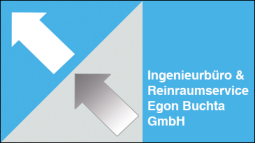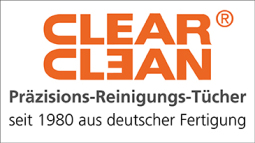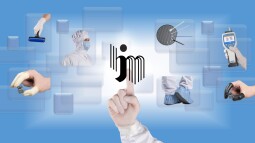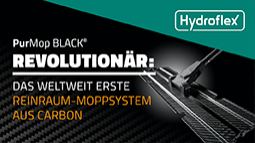- Trade fair
Digitalisation in Machine Building – an Evolutionary Process
Current issues in the plastics processing industry include increasing energy efficiency in production and circular economy, as well as the development and processing of non-petroleum-based polymers. Michael Wittmann, President of WITTMANN Technology in Vienna, emphasizes in an exclusive interview with P. E. Schall GmbH that personal exchange at the Fakuma 2021 on-site trade fair is essential and will be an invaluable asset for getting to know the needs of customers and business partners.
Which challenges is the plastics processing industry facing now, and which will it have to deal with in the future?
A highly topical challenge is the largely sluggish, sometimes inadequate supply of materials which is preoccupying our industry and was previously unknown to this extent. However, according to popular opinion this situation should improve by the end of this year or the beginning of 2022. Beyond this, our customers and business partners are looking very closely at increasing energy efficiency in production and the associated reduction of CO2 emissions, the effects of a circular economy, and the development and processing of polymers that are not based on petroleum and have the potential of being socially accepted in the long term. Increasing levels of digitalisation and improved production control are likewise important development trends in the industry’s companies.
How do you see the positioning of German plastics processing companies with regard to digitalisation and automation?
The degree of digitalisation differs greatly depending on the size of the company. The term “digitalisation” is also understood in greatly varying ways, depending on who you’re speaking with. Many small and mid-size enterprises (SMEs) with machine parks of up to about 25 injection moulding machines understand digitalisation as the networking of internal business processes, in some cases also by integrating them into the supply chains of larger customers. For large companies, nearly always with international positioning and an advanced degree of networking, digitalisation is advancing towards the realisation of the “glass factory”.
Digitalisation of the machinery fleet is progressing in Germany, but with a great deal of potential for the future. One of the stumbling blocks is the insufficient availability of standardised interfaces, because many peripherals are not yet covered by a Euromap standard and the standardisation process is making relatively slow progress. Another difficulty faced by the machine building industry in general is the very long service life of production machines. In some cases older machines can only be digitalised with disproportionately large financial and technical outlays, which is then avoided as a rule. In this respect, digitalisation in the machine building industry is a gradual process which is also taking place in this same evolutionary manner.
The industry is intensively engaged in the transformation from a linear to a circular economy. How far along are we in this regard?
Already today, injection moulding machines are being utilised for applications in which a wide variety of material qualities are used. The spectrum of materials ranges from pure virgin material to reclaim and regranulate, right on up to the processing of 100% regrind. The processing of recyclates in injection moulding machines is not the major innovation or challenge, but rather a functioning collection system that ensures good separation and relatively good grade purity. A successful example of circular economy is bottle-to-bottle recycling of PET bottles.
Plastics are omnipresent in all areas of life, but they frequently don’t have a good image. How do you think we can we improve the reputation of plastics?
As long as plastic waste is dumped uncontrolled into the environment, it won’t be possible to improve the image of plastics. And as long as there are countries in the world that haven’t established waste collection systems, or have systems that don’t function adequately, all kinds of rubbish, and thus highly durable plastics as well, will end up in the environment. This is not a problem caused by plastics themselves – it stems from the fact that plastics are now found in so many applications in daily life all over the world. Any other material which is attributed little or no material value will meet the same fate. And thus I believe that plastics will continue to suffer from a bad reputation, but due to their versatility and their smaller carbon footprint as compared with virtually all other materials, they’ll remain indispensable. Biodegradable plastics would certainly be a solution, but these will first have to fulfil numerous functional criteria, and they mustn’t compete with the food industry.
How important is it for you personally, and for your company, to demonstrate presence at trade fairs and to exchange ideas with customers in person – specifically at Fakuma 2021?
Personal exchange is essential in our industry and it’s an invaluable asset for getting to know the needs of our customers and business partners. At any rate, we’re looking forward to Fakuma 2021 and hope that it can be held in the announced format and in compliance with current hygiene measures.
To what extent have you been able to take advantage of the Fakuma-Virtual trade fair portal for yourself and your customers in recent months?
From our point of view, the trade fair portal is above all well-suited for making information concerning exhibits presented at Fakuma easily accessible to interested parties over a longer period of time, and for arousing curiosity in advance and encouraging a visit to our trade fair booth.
Which product highlight will you showcase at Fakuma 2021 in Friedrichshafen?
The highlight of this year’s presentation for the injection moulding machine sector is our new SmartPlus. It’s a servo-hydraulic machine distinguished by high levels of economy, energy-efficiency and stability. Thanks to the use of proven technologies and selected options, it will be possible to offer short delivery times and outstanding value for the money with this machine in the future.
The robot series is being expanded to include the SONIC 108 high-speed unit – suitable for use on smaller injection moulding machines with clamping forces of 50 tons or more. The revised WX153 robot will also be presented – the ideal automation solution for injection moulding machines with clamping forces ranging from 500 to 1300 tons.
Two new units will be presented in the field of mould temperature control: the TEMPRO basic Large 120 temperature controller for use on large and heavy injection moulds, and the TEMPRO plus D200, a new temperature controller with circulating water for high-temperature applications.
The successful series of CARD compressed air dryers is also being expanded with two new additions: the CARD primus 10S and the CARD primus 20S. The CARD primus units are being offered as package solutions that also include a conveyor unit with a delivery hose and a suction lance. CARD primus dryers are suitable for temperatures of up to 200° Celsius and can be used in a broad range of applications.
Where recycling is concerned, WITTMANN will introduce revamped versions of its G-Max 23 and G-Max 33 granulators. The machines are now equipped with larger hopper openings and either a fixed or rotating variant of the material outlet can be selected.
DECHEMA Ausstellungs-GmbH
60486 Frankfurt am Main
Germany











